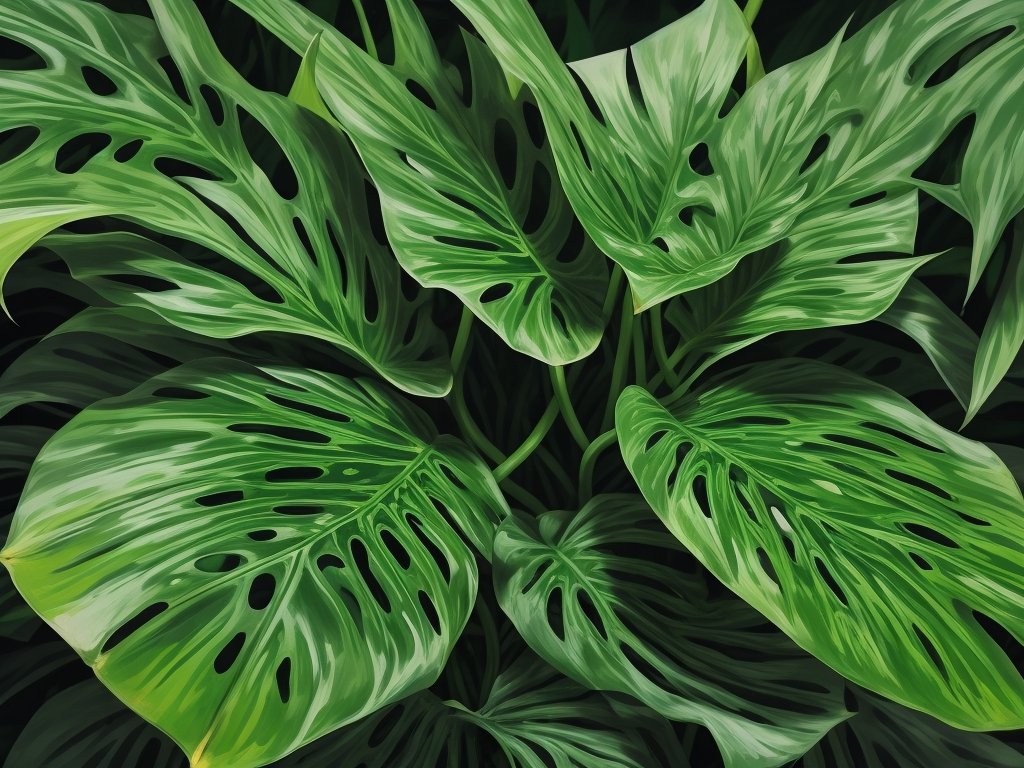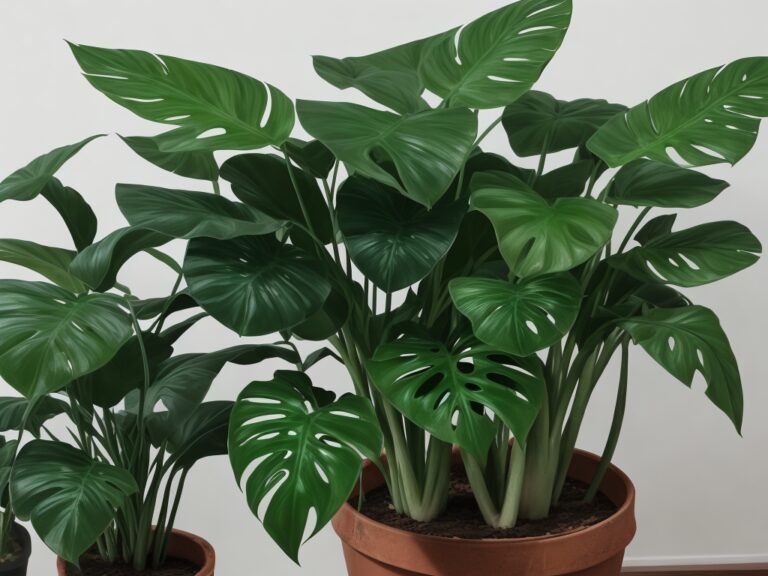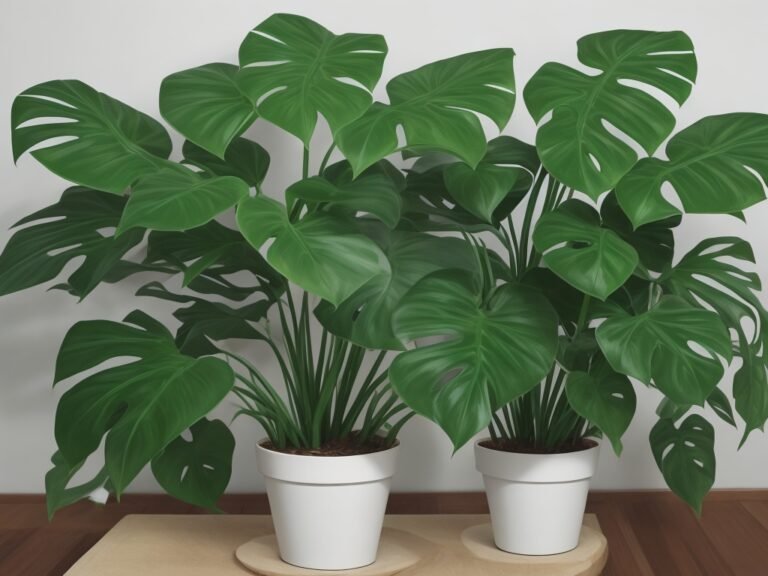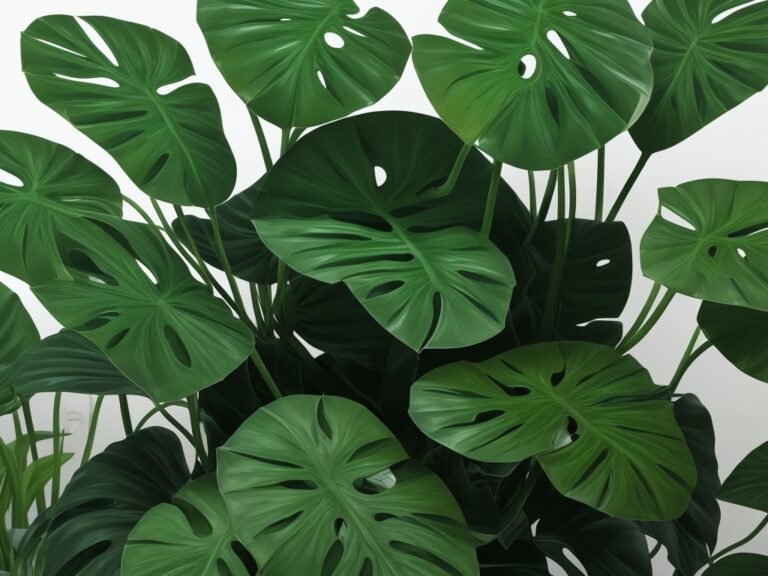What Type Of Soil Is Best For Monstera Plants?
Key Takeaways:
- Monstera plants thrive best in well-draining soil that allows for proper moisture control.
- A mix of peat moss, perlite, and potting soil is an ideal choice for Monstera plant growth.
- Avoid using heavy clay or sandy soils, as they are not suitable for Monstera plants.
- Regularly assessing and adjusting the soil conditions can help promote healthy growth for your Monstera plants.
Hey plant lovers! Are you ready to unlock the secret to thriving Monstera plants? Well, get ready because I’m about to spill the soil beans.
You see, Monstera plants are not your average houseplants.
They have specific growth and care requirements that need to be met in order for them to truly flourish. And one crucial factor in their success is the type of soil they’re planted in.
Yep, you heard that right! The right soil can make all the difference for your Monstera.
So, let’s dig deep and explore what type of soil is truly the best for these magnificent plants.
| Type of Soil | Description |
|---|---|
| Well-draining soil mix | A mixture of peat moss, perlite, and potting soil that allows excess water to drain easily, preventing root rot |
| Rich and organic soil | Soil enriched with organic matter such as compost or leaf mold, providing essential nutrients for healthy plant growth |
| Aerated soil | A soil mix with plenty of air space that allows oxygen to reach the plant’s roots, ensuring good root health |
| Loamy soil | A balanced soil mix with a combination of sand, silt, and clay, providing good drainage and retaining moisture |
| Well-drained tropical potting mix | A specialized potting mix designed for tropical plants, typically containing coco coir, orchid bark, and perlite |
Understanding the Monstera Plant
The Monstera Plant is a popular houseplant known for its large, tropical leaves and unique aerial roots. Let’s dive into its growth and care requirements!
Growth and Care Requirements of Monstera Plants
Monstera plants require bright,Monstera plant growthrive.
Water them when the top inch of soil feels dry, and be sure to provide adequate humidity.
They prefer temperatures between 65-85°F (18-29°C).
Fertilize every 2-4 weeks during the growing season.
Regular pruning is also important to promote growth and maintain their signature appearance.
Importance of Soil for Monstera Plants
The type of soil you use for your Monstera plants is crucial for their overall health and growth.
Optimal Soil Conditions for Monstera Plants
To provide optimal soil conditions for your Monstera plants, you need a well-draining potting mix that retains moisture but doesn’t become soggy.
A good potting mix consists of a combination of peat moss, perlite, and pine bark.
Avoid using heavy, compacted soils and ensure the pH level is slightly acidic to neutral.
Regularly check the moisture levels and adjust watering accordingly to maintain healthy soil conditions for your Monstera plants.

Nutrient Requirements of Monstera Plants
Monstera plants require a balanced mix of nutrients for optimal growth. They need macronutrients like nitrogen, phosphorus, and potassium, as well as micronutrients like iron and manganese.
These can be provided through regular fertilization using a balanced, water-soluble fertilizer.
Additionally, ensuring proper soil pH and moisture levels is important for nutrient absorption.
Types of Soil for Monstera Plants
When it comes to Monstera plants, there are two main types of soil to consider.
Indoor Potting Mix for Monstera Plants
The best indoor potting mix for Monstera plants is a well-draining and nutritious blend.
It’s important to use a mix that retains moisture but also allows excess water to drain easily.
A recipe for a good potting mix includes a combination of organic matter like peat moss, compost, and perlite or vermiculite for added drainage.
Avoid using regular garden soil as it can become compacted and hinder root growth.

Outdoor Garden Soil for Monstera Plants
Outdoor garden soil for Monstera plants should be well-draining and rich in organic matter.
A mix of garden soil, perlite, and compost works well.
Ensure the soil is moist but not waterlogged.
Avoid compacted or clayey soil, as it can lead to root rot.
Regularly check the moisture level and adjust watering accordingly.

DIY Potting Mix for Monstera Plants
Creating your own potting mix for Monstera plants is easier than you might think!
Recipe for a Well-Draining Potting Mix
To create a well-draining potting mix for your Monstera plants, you’ll need a few key ingredients. Start with equal parts of high-quality potting soil and perlite or pumice.
These additives help improve drainage and prevent waterlogged soil.
You can also add some coconut coir or peat moss to enhance moisture retention. And don’t forget to supplement the mix with organic matter like compost for added nutrients.
Mix everything together thoroughly, and you’re good to go!
Supplementing Soil with Organic Matter
Supplementing soil with organic matter is essential for Monstera plants’ health and growth.
It enriches the soil, improves drainage, and enhances nutrient availability.
Organic matter can be added in the form of compost, well-rotted manure, or leaf mold.
This boosts soil fertility and promotes a thriving Monstera plant.
pH Level Considerations for Monstera Plants
The ideal pH level for Monstera plants is between 6 and 7. This slightly acidic to neutral range allows for the optimal absorption of nutrients from the soil.
To maintain the appropriate pH level, you can use a pH meter or test kit to monitor the acidity of your soil.
If necessary, you can adjust the pH by adding amendments such as lime to increase alkalinity or elemental sulfur to lower acidity.
Frequently Asked Questions about Soil for Monstera Plants
Can I use regular potting soil for Monstera plants?
Yes, you can use regular potting soil for Monstera plants.
However, it’s important to ensure that the soil is well-draining and contains organic matter.
You can also add perlite to improve drainage.
Regularly check the moisture level and adjust watering accordingly.
How often should I repot my Monstera plant?
Repot your Monstera plant every 1-2 years, or when you notice it has outgrown its current pot.
Look for signs like roots circling around the pot or protruding from the drainage holes.
Choose a slightly larger pot and fresh soil to accommodate its growth.
Can I use garden soil for Monstera plants?
No, garden soil is not suitable for Monstera plants.
It tends to retain too much moisture and can lead to root rot.
Instead, use a well-draining indoor potting mix or create your own by combining ingredients like peat moss, perlite, and compost.
Should I add perlite to the soil for Monstera plants?
Yes, adding perlite to the soil for Monstera plants is beneficial.
Perlite improves drainage and aeration, preventing waterlogged soil and root rot.
It also helps to create a well-draining potting mix that mimics the plant’s natural habitat.
Add perlite to increase soil porosity.
Final Verdict
Understanding the soil requirements of Monstera plants is crucial for their growth and overall health. Optimal soil conditions include a well-draining potting mix, supplemented with organic matter for added nutrients.
The pH level of the soil should be slightly acidic to neutral.
Regular potting soil can be used for Monstera plants, but it is recommended to enhance it with perlite for improved drainage. Repotting should be done every 1-2 years.
Garden soil can be used for outdoor Monstera plants, but it should be amended with organic matter.
By providing the right soil conditions, you can ensure that your Monstera plants thrive and bring beauty to your home or garden.





